Holocaust Memorial Rites at Pan Pacific Park Draw 2,000
Although their numbers are thinning with age, Shoah survivors comprised most of the audience of about 2,000 at the annual Holocaust remembrance service Sunday at Pan Pacific Park in the Fairfax district.
Hungarian survivor Eva Brettler was 7 years old when she saw her mother killed on a forced march from Budapest to the Ravensbruck and Bergen-Belsen camps, from which she was liberated.
“It’s a way of connecting with all the lost people,” Brettler said of Sunday’s event. “It’s very difficult, but it’s, in a way, remembering and, God willing, it will never re-occur again.”
Calling the survivors a “living testament to the Holocaust,” Israeli Consul General Ehud Danoch spoke, along with former U.S. Ambassador Dennis Ross, State Insurance Commissioner John Garamendi, Los Angeles Mayor Antonio Villaraigosa and Jona Goldrich, chairman of the Los Angeles Holocaust Monument.
“What we’re here to remember is the importance of memory itself,” the mayor said. “This year, we mark the 60th anniversary of the trials of Nuremberg.”
Villaraigosa asked all Shoah survivors present to stand, and most of the audience rose to applause.
Speakers implored Jews and non-Jews worldwide to confront continuing anti-Semitism and remain vigilant against the Islamist terrorist group, Hamas, which in February gained control of the Palestinian Authority.
“Hatred of Jews because they are Jews is still very real,” Danoch said.
The annual remembrance took place near the Los Angeles Holocaust Monument and was held two days before the worldwide Yom HaShoah/Holocaust Remembrance Day on April 25. Yom HaShoah events also included the annual remembrance Tuesday at the Museum of Tolerance, plus an event for Catholic, Jewish and public schoolchildren on April 25, also at Pan Pacific Park.
Sunday’s service ended with the crowd reciting Kaddish, the mourners’ prayer, and a choir singing “The Partisan Song.”
Survivors and their children then made their way to the park’s nearby Holocaust monument. An 80-year-old Dutch survivor stood over the monument ground’s flat plaque bearing the phrase, “The Netherlands 100,000,” and as he looked down, he wept, briefly. — David Finnigan, Contributing Writer
Waxman Ties Judaism to His Attitude Toward Politics
For longtime Rep. Henry Waxman (D-Los Angeles), it is through action that Jews can best demonstrate core Jewish values. During his 32-year tenure in Congress, that has meant supporting legislation to help those in need and playing watchdog to the powerful.
Waxman, 66, was the keynote speaker for this year’s eighth annual Carmen and Louis Warschaw Distinguished Lecture and he spoke of how Judaism affects his attitude toward policy and politics.
Unlike some past series speakers, Waxman delivered remarks that were sharply political and not very revealing at a personal level. But Waxman’s earnestness was evident as he talked about serving in the House as a Democrat, while Republicans held sway in both Houses of Congress and the White House.
Describing the last six years of “essentially one-party rule in Washington,” Waxman cited numerous examples of what he termed inappropriate government behavior, including legislation forced through without proper discussion, bills delayed while recalcitrant voters were rounded up, violations of parliamentary procedures, and the withholding of key information. He also found fault with the substance of Bush administration policies, which he said prioritized the interests of the wealthy and corporations to the detriment of the poor and the middle class. The current political climate, he said, is characterized by the terrible triumvirate of arrogance, secrecy and lack of accountability.
For Waxman, such abuses have no place in a democracy.
“I believe,” he concluded, “that the leadership of our government in both Congress and the executive branch has turned away from core values we have as Americans and as Jews.
“By the way,” he added, “I think those values are very much the same. Justice Brandeis said, ‘If you want to be a good American, be a good Jew.’ I make these comments in the great tradition of our people that we should be willing to speak truth to the powerful.”
Waxman has been called one of the “ablest members of the House” by the authoritative Almanac of American Politics. He has developed legislation on a range of issues, such as health insurance protections, air and water quality standards, pesticide control, Medicare and Medicaid coverage, anti-tobacco efforts, AIDS prevention and treatment and funding for women’s health research.
As the ranking member of the Government Reform Committee, Waxman is noted for spearheading numerous investigations. Recent efforts have focused on White House ties to Enron, contract abuses in Iraq and the politicization of science. In a recent profile outlining his persistence and efficacy, the French newspaper, Le Monde, referred to him as “l’Eliott Ness du Congres.”
Waxman said he tries to base his actions as an elected official on tzedakah — “which means righteousness, not charity; [helping to] bring justice to others and sanctity to ourselves.”
Waxman, an unapologetic liberal, also is known for his strong support of Israel. In his speech, he criticized the prosecution of two former American Israel Public Affairs Committee staffers accused of allegedly disclosing classified information they received from a Pentagon employee.
In introductory remarks at the Sunday event, Rep. Howard Berman (D-North Hollywood), Waxman’s long-time friend and colleague, noted Waxman’s value by quoting an unnamed Republican strategist. This strategist’s first argument for maintaining Republican control of both houses of Congress, said Berman, was the horror of imagining what would happen if Waxman chaired an oversight committee and could fully investigate Congress and the Bush administration.
Some of that analysis could apply as well to Berman, who last week was named to the House Ethics Committee, where he will be the ranking Democrat. Berman, who has served in the post previously, replaces Rep. Alan Mollohan (D-W.Va), who withdrew from the committee when questions arose recently over his ethics.
In an interview with The Journal, Berman said he accepted his new role on the House Ethics Committee with some reluctance. “It’s an honor, I could have done without,” said Berman. “It’s never fun to have to make judgments about your colleagues.”
Officially called the Committee on Standards of Official Conduct, the ethics panel is evenly divided between Democrats and Republicans, the only committee configured that way. The thinking, said Berman, who previously served as ranking Democrat from 1997-2003, was to prevent partisan politics from being the driving force in the committee’s work.
“But there’s no doubt,” he added, “that the current intensity of partisan battling and confrontation has made this difficult.”
The Warschaw lecture, presented by the Casden Institute for the Study of the Jewish Role in American Life, has become an annual opportunity for political leaders and thinkers to examine the intersection of Jewish values and political activity.
Waxman, who has represented the 30th District since 1974, told the USC audience that he’s always had a strong Jewish identity. However, he added, it was only as an adult that he began to more deeply explore the Jewish religion.
A Conservative Jew who observes the laws of kashrut and Shabbat, Waxman said that rituals provide “a check on our arrogance and self-importance.” Shabbat, for example, provides a weekly reminder that “no matter how important I may be, the world can get along without me quite well for one day.” – Naomi Glauberman, Contributing Writer
Congregation Adat Chaverim Receives $50,000 Grant
Congregation Adat Chaverim in the San Fernando Valley will use its $50,000 share of a grant to pay for a part-time rabbi and grow as a religious community.
Adat Chaverim is one of two U.S. congregations selected to share a $100,000 Pivnick Community Development Grant from the Society for Humanistic Judaism. The grant carries an award of $50,000, payable over a period of three years.
Since it was founded in 2000, lay members of the congregation have conducted services, educational programs and organized special life-cycle and holiday events. The funds will allow the congregation to bring in on a more frequent basis Rabbi Eva Goldfinger, who has visited the congregation several times to conduct special events, including a Passover fair and a Tu b’Shevat seder over the past year.
Members said they hope to hire Goldfinger on a full-time basis eventually. The rabbi grew up in a Chasidic family and was ordained by the International Institute of Secular Humanistic Judaism in 2005. She is currently director of adult education at the Oraynu Congregation for Humanistic Judaism in Toronto.
The Adat Chaverim membership consists of 43 families and “70-few” people, said congregation president Joan Waller, a retired professor of early childhood education at the College of the Canyons. “We’re energetic and hard working and have good potential. And with the appointment of Rabbi Goldfinger, we will be the only Humanistic Jewish congregation west of Chicago to have our own rabbi.”
According to a statement by the Society for Humanistic Judaism, the movement was founded in 1969 and “embraces a
human-centered philosophy that affirms the power and responsibility of individuals to shape their own lives independent of supernatural authority.” The movement “endorses ideals derived from the Jewish experience.”
Congregation Adat Chaverim meets for services, educational and other programs at Friends of Valley Cities Jewish Community Center in Sherman Oaks.
The grant will be formally presented at the Society for Humanistic Judaism’s annual convention in Cambridge, Mass., on April 28. To earn the award, Adat Chaverim submitted a grant application that included detailed plans for fundraising, marketing and publicity campaigns, as well as a five-year budget. — Peter L. Rothholz, Contributing Writer
Israeli Nobel Laureate Speaks at Sinai Temple
Israel’s first Nobel Prize laureate in science, professor Aaron Ciechanover of Technion-Israel Institute of Technology in Haifa, made a recent stop at Los Angeles’ Sinai Temple to address Saturday morning services.
Ciechanover discussed the award-winning research that earned him the 2004 prize in chemistry, which he shared with Technion’s Avram Hershko and Irwin Rose of UC Irvine. Their joint collaboration, beginning in the early 1980s, led to the discovery of ubiquitin-mediated protein degradation, which ultimately has led to promising treatments or potential treatments for a variety of diseases. At the time, such work “went against the stream,” because few researchers were interested in protein-breakdown, said the Royal Swedish Academy of Sciences in bestowing the award upon the trio.
As a result of their research, it is now possible to understand at a molecular level how a cell controls a number of central processes by breaking down certain proteins and not others. Processes governed by this system include cell division and DNA repair.
In his April 8 talk, Ciechanover noted that his team’s findings offer a window of opportunity to develop drugs against cervical cancer, cystic fibrosis and various autoimmune and neurodegenerative diseases. — Melissa Maroff, Contributing Writer






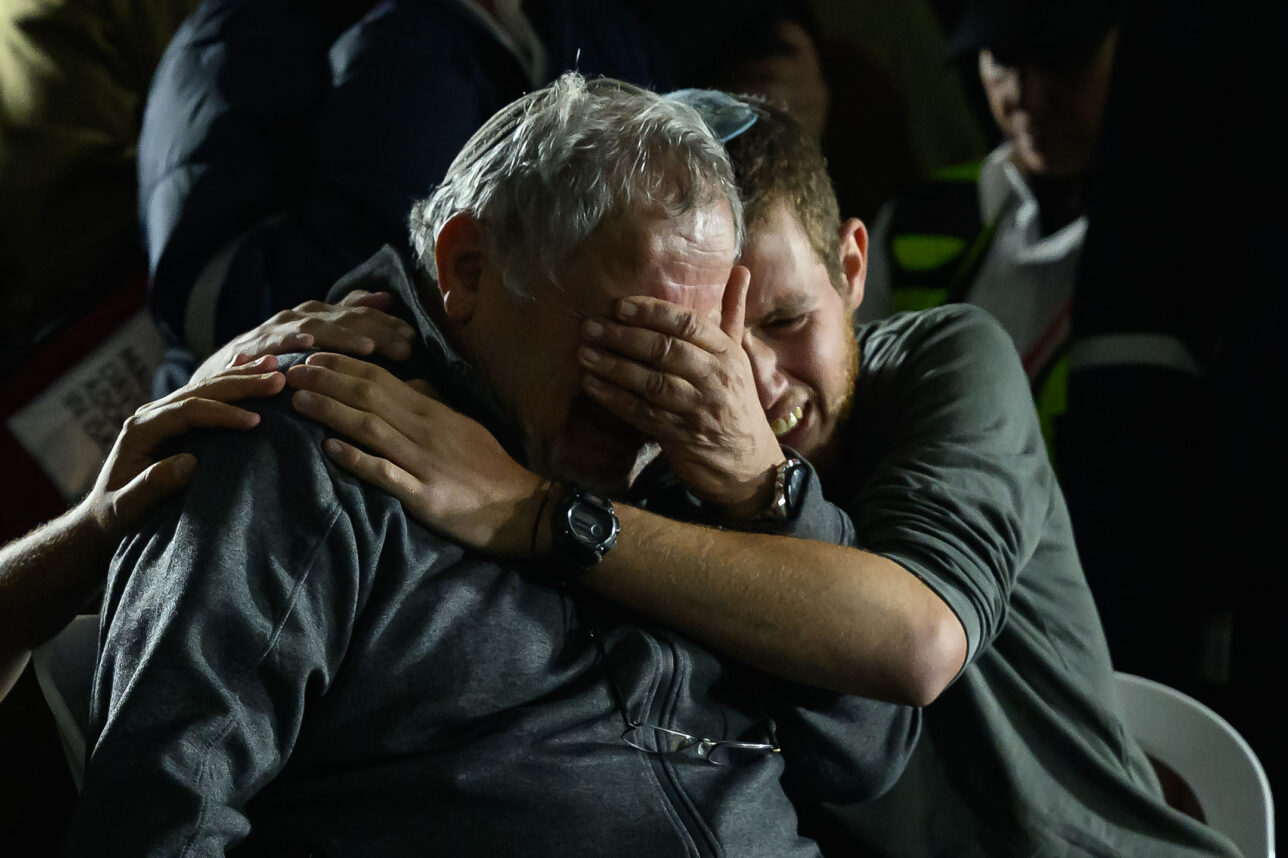

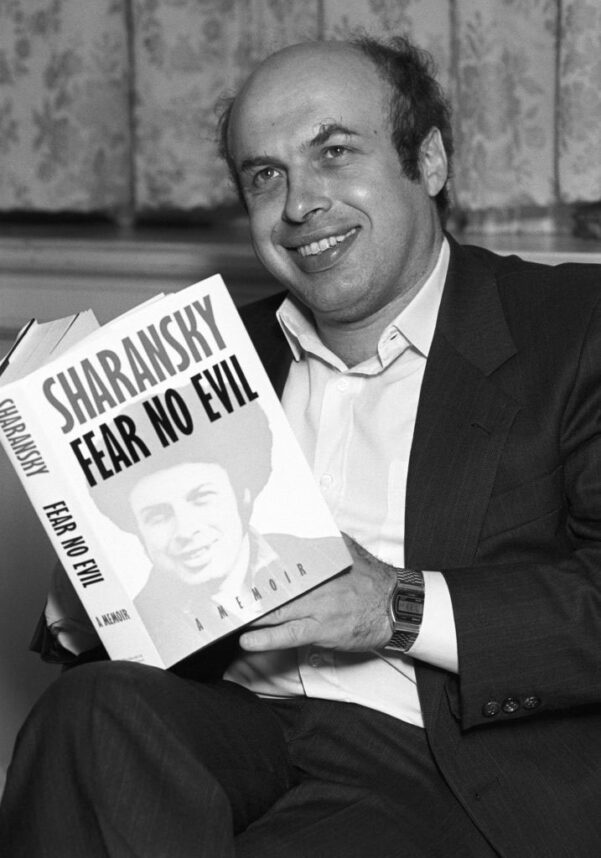



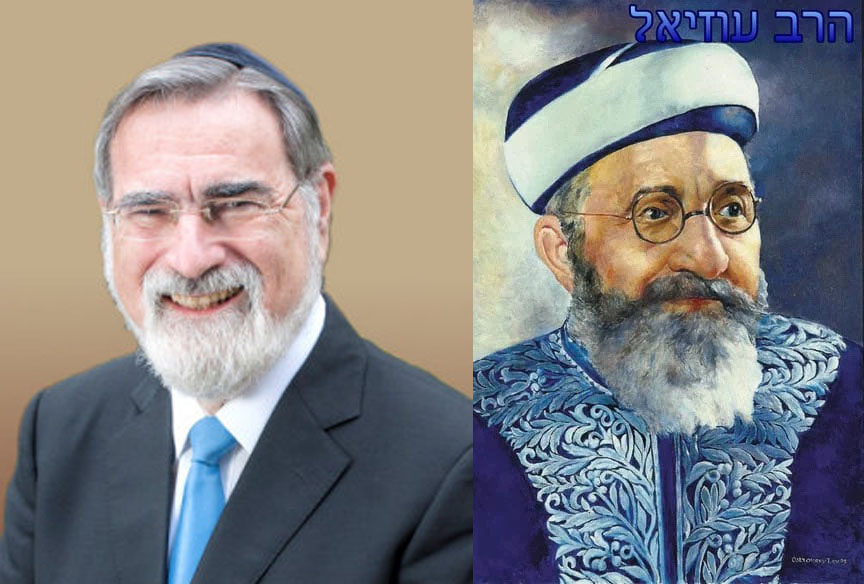

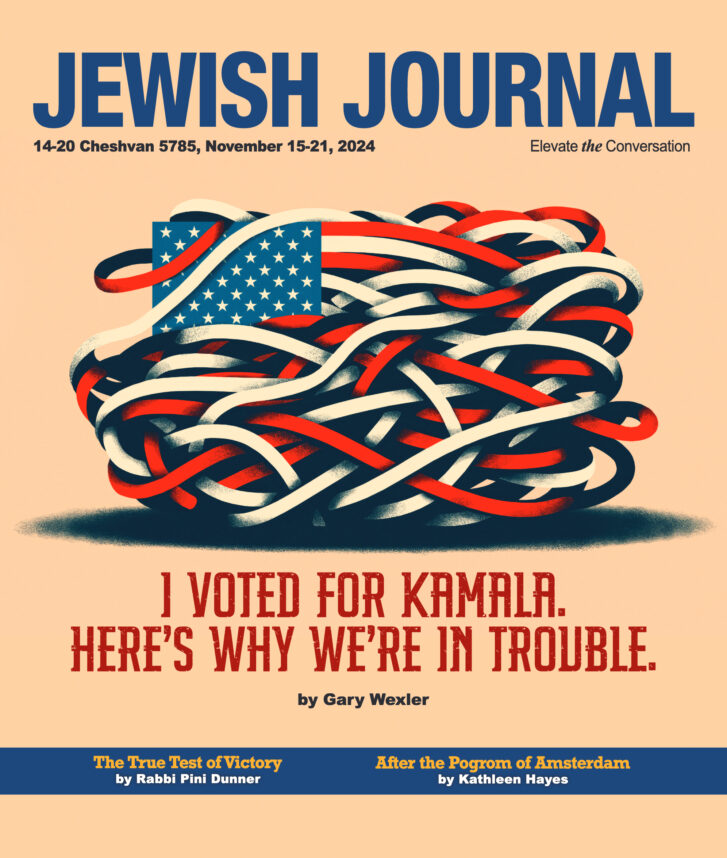
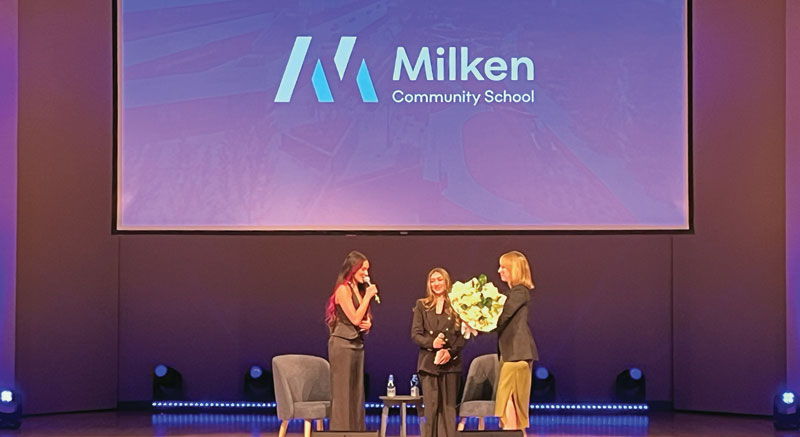





 More news and opinions than at a Shabbat dinner, right in your inbox.
More news and opinions than at a Shabbat dinner, right in your inbox.